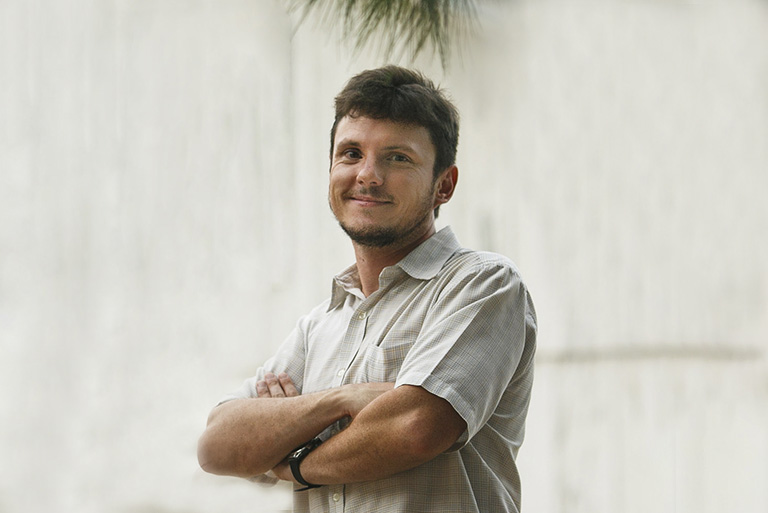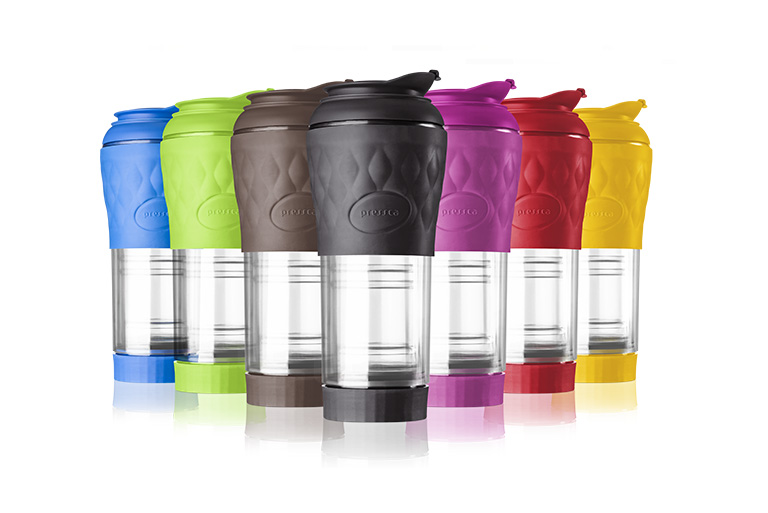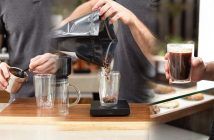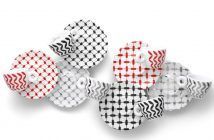As a success among baristas, the company now launches the Dose Certa dosing scale. By the end of the year, it will launch a milk aerator and a manual coffee grinder
Pressca, a hand-operated portable infusion coffee maker, created by Naxos, a company specializing in home appliances, is already a great success among lovers of special coffee in Brazil, with more than 50 thousand units sold. Now, it is preparing to conquer the world: soon, it will be available in the Czech Republic, Germany, USA, Chile, Peru and Uruguay.
The parent company, Naxos was founded more than 60 years ago and, in its command, is the fourth generation of the family. The factory is located in the city of Rio do Sul, in Santa Catarina. Its production was totally turned to utilitarian items, of great volume and little added value, as the stove lighters. “Our customers, before we went into the utilities market for the specialty coffee industry, were basically the big retailers like Wall Mart and the main stores at Avenida 25 de Março,” says company director Ciro Pereira.

Ciro Pereira, director of Pressca.
At an international trade fair for domestic utilities, shortly after the fall of the Nespresso capsule, Ciro realized that there was a great potential in the coffee market.
“Despite being Brazilian, I did not have much intimacy with the cafes,” he says. He started researching and, in the meantime, was contacted by a southern barista, Gerson Amaro, who wanted to produce a portable coffee maker.
Soon, Ciro came across the universe of specialty coffees and their demands. He spent four years researching until Pressca was ready to be launched in November 2016. They hired a design company in Joinville and three different Chinese offices to develop the prototypes of Pressca’s parts in order to preserve the product of copies even before the release.
Ciro says that they invested around R$ 1 million with the direct involvement of 25 professionals, until the launch of Pressca. The idea was that the product was plastic-made, to cheapen the production and help popularize the gadget.
“Pressca, since its launch in 2016, has undergone four changes for its enhancement. The metal filter welding, the handle of the base thread, the base thread itself, the new alloy for the sealing ring, and now we are using a new material, more resistant, in the manufacture of the inner cup”, comments Cyrus.
“All these changes were market suggestions that, thanks to our proximity, could be quickly implemented,” he says.

Portable coffee maker Pressca
Unlike its other items, Pressca has been marketed in coffee shops, grocery stores and organic stores throughout Brazil, as well as its own website, www.pressca.com.br and other electronic addresses for products specializing in specialty coffees.
How it works
Pressca is versatile, since coffee can be prepared in different ways, although the manufacturer clarifies that the pressed method is the main one. “You can create coffee recipes by alternating infusion time, water temperature, quantity, and type of grain grind. In addition, it is also a great tool for the preparation of teas or other drinks by infusion,” explains the director.
The product is found in seven different colors: yellow, blue, black, brown, pink, green and red. It serves the equivalent to five small cups. It costs, on average, around R$ 100 to R$ 110.
Dosing scale
The second product of the Pressca line is the dosing scale, which has just been launched. In fact, it is a spoon to pick up the coffee that, at the same time, weighs the amount, quite accurately.” Made of plastic, the scale costs around R$ 18, far below a Hario, which will cost you around R$ 400. The dosing scale has a margin of error equivalent to 0.1 to 0.5 grams. This, compared to a precision digital scale, means a very small margin of error,” explains Ciro.
“Still in 2018, we are expecting to launch new products, such as a milk aerator and a manual coffee grinder,” concludes the director.



